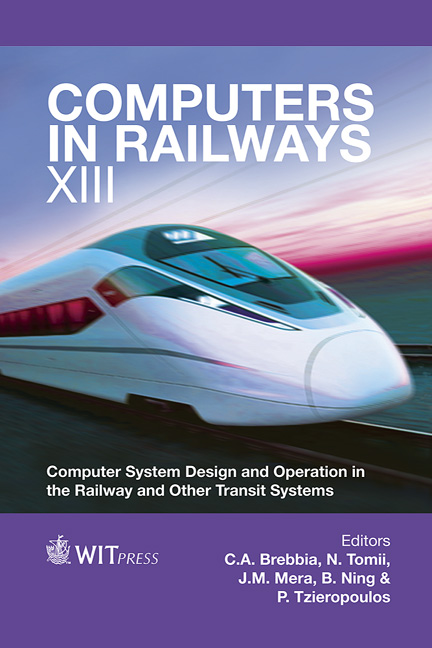Holistic Optimization Of Train Traffic By Integration Of Automatic Train Operation With Centralized Train Management
Price
Free (open access)
Transaction
Volume
127
Pages
12
Page Range
39 - 50
Published
2012
Size
2,187 kb
Paper DOI
10.2495/CR120041
Copyright
WIT Press
Author(s)
X. Rao, M. Montigel & U. Weidmann
Abstract
Nowadays, railways are confronted with numerous pressing problems, including capacity optimization, energy conservation, cost reduction and improving customer satisfaction. While the traditional railway is a very safe means of transportation, it still cannot meet all these requirements. Hence there are high interests in two available systems to overcome these challenges: Traffic Management System (TMS) and the optimized Automatic Train Operation (ATO). TMS is an efficient solution, which centralizes data to the railway infrastructure manager, while optimized ATO is an on-board approach available to minimize the loss of efficiency caused by manual operation. Until now, there are a lot of research studies about TMS and ATO as separate subjects. However, there is only poor research, which aims at closely coordinating the optimization strategies of TMS and ATO. This is because TMS is limited in the network scheduling optimization, while optimized ATO is centred on train behaviour optimization. Therefore this article presents the key idea of this research is to bridge the gap between TMS and ATO, to make progress towards combining the knowledge from both the infrastructure side and the train side. The primary objective is to bring an added value for achieving higher capacity, less energy consumption and higher operation quality by integration of Automatic Train Operation with centralized Train Management. In addition, an optimized ATO approach is introduced by integration of predictive fuzzy control with analytical hierarchy process. If this research has a positive response, it could bring about a new
Keywords
optimized automatic train operation, traffic management system, integration, multi-objectives optimization, predictive fuzzy control, analytical hierarchy process





